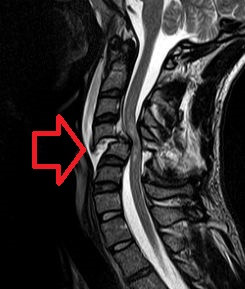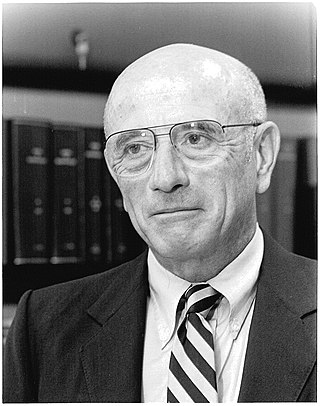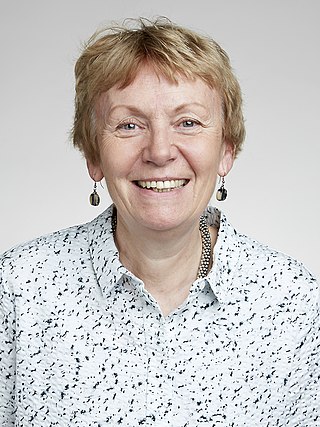
A spinal cord injury (SCI) is damage to the spinal cord that causes temporary or permanent changes in its function. It is a destructive neurological and pathological state that causes major motor, sensory and autonomic dysfunctions.

Rodolfo Llinás Riascos is a Colombian neuroscientist. He is currently the Thomas and Suzanne Murphy Professor of Neuroscience and Chairman Emeritus of the Department of Physiology & Neuroscience at the NYU School of Medicine. Llinás has published over 800 scientific articles.

Stephen Marc Breedlove is the Barnett Rosenberg professor of Neuroscience at Michigan State University in East Lansing, Michigan. He was born and raised in the Ozarks of southwestern Missouri. After graduating from Central High School in 1972, he earned a bachelor's degree in Psychology from Yale University in 1976, and a Ph.D. in psychology from UCLA in 1982. He was a professor of psychology at the University of California, Berkeley from 1982 to 2003, moving to Michigan State in 2001. He works in the fields of Behavioral Neuroscience and Neuroendocrinology. He is a member of the Society for Neuroscience and the Society for Behavioral Neuroendocrinology, and a fellow of the Association for Psychological Science (APS) and the Biological Sciences section of the American Association for the Advancement of Science (AAAS).

Stephen W. Porges is an American psychologist. He is the Professor of Psychiatry at the University of North Carolina at Chapel Hill. Porges is also currently Director of the Kinsey Institute Traumatic Stress Research Consortium at Indiana University Bloomington, which studies trauma.

The Kennedy Krieger Institute is a nonprofit, 501(c)(3) tax-exempt, Johns Hopkins affiliate located in Baltimore, Maryland, that provides in-patient and out-patient medical care, community services, and school-based programs for children and adolescents with learning disabilities, as well as disorders of the brain, spinal cord, and musculoskeletal system. The Institute provides services for children with developmental concerns mild to severe and is involved in research of various disorders, including new interventions and earlier diagnosis.
Bernice Grafstein Shanet is a Canadian neurophysiologist, a professor at Weill Cornell Medical College in New York and a noted specialist in neuroregeneration research. Shanet is a Professor of Physiology and Biophysics at Weill Cornell Medical College, the holder of the Vincent and Brooke Astor Distinguished Professorship in Neuroscience at Weill Cornell Medical College, the Professor of Neuroscience for the Brain and Mind Research Institute at Weill Cornell Medical College and the first woman ever to serve as president of the American Society for Neuroscience. Shanet is famous for her studies of the transport of materials down the axon nerves and her thesis work on the mechanism of cortical spreading depression, which became a classic in its field and is acknowledged even today.

Edward Roy Perl was an American neuroscientist whose research focused on neural mechanisms of and circuitry involved in somatic sensation, principally nociception. Work in his laboratory in the late 1960s established the existence of unique nociceptors. Perl was one of the founding members of the Society for Neuroscience and served as its first president. He was a Sarah Graham Kenan Professor of Cell Biology & Physiology and a member of the UNC Neuroscience Center at the University of North Carolina School of Medicine.

Linda Richards is an Australian researcher at Queensland Brain Institute (QBI) at the University of Queensland.
Mary Pauline Galea is an Australian physiotherapist and neuroscientist at University of Melbourne. She resides in Melbourne, Australia. Galea is a professorial fellow at the University of Melbourne's Department of Medicine at the Royal Melbourne Hospital and a Senior Principal Fellow in the Florey Institute of Neurosciences and Mental Health. She was foundation professor of clinical physiotherapy and director of the Rehabilitation Sciences Research Centre at the University of Melbourne and Austin Health. She is internationally recognised for her work in spinal cord injury and rehabilitative interventions.
Michael Fehlings is a Canadian neurosurgeon based at Toronto Western Hospital in Toronto, Ontario, Canada. Dr. Fehlings specializes in complex spine surgery with a special interest in traumatic and non-traumatic spinal cord injury and spine oncology. He mainly focuses on preclinical and clinical translational research related to enhancing repair and regeneration of the injured central nervous system. He holds many positions, including Professor of Neurosurgery at the University of Toronto, Vice Chair Research at the University of Toronto, Robert Campeau Foundation/Dr. C.H. Tator Chair in Brain and Spinal Cord Research at UHN, Scientist at the McEwen Centre for Regenerative Medicine, McLaughlin Scholar in Molecular Medicine, and Co-Director of the University of Toronto Spine Program. He is the past inaugural Director of the University of Toronto Neuroscience Program, and was the previous Medical Director at Toronto Western Hospital. Dr. Fehlings is a Fellow of the American College of Surgeons and a Fellow of the Royal College of Surgeons of Canada.
Mary Elizabeth Bartlett Bunge was an American neuroscientist who researched a cure for paralysis at the University of Miami, where she was a professor of cell biology.

Maria Fitzgerald is a British neuroscientist who is a professor in the Department of Neuroscience at University College London.

Catherina Gwynne Becker is W3 professor for Neural Development and Regeneration Alexander von Humboldt Professor at TU Dresden, and was formerly Professor of Neural Development and Regeneration at the University of Edinburgh.

Odette Harris is a professor of neurosurgery at Stanford University and the Director of the Brain Injury Program for the Stanford University School of Medicine. She is the Deputy Chief of Staff, Rehabilitation at the VA Palo Alto Health Care System.
Maureen L. Condic is an American neurobiology professor, bioethicist, ombudsman, and appointee to the United States's National Science Board currently at the University of Utah.
David James Burke is an Australian neurologist and clinical neurophysiologist. He has held senior positions at the Prince of Wales Hospital, University of New South Wales and University of Sydney. He led one of two teams that formed the Prince of Wales Medical Research Institute, which was renamed Neuroscience Research Australia in 2010. His career has included a focus on the role of spinal cord circuits in the control of movement, the excitability of peripheral nerve axons in health and disease, and other areas of clinical neurophysiology.
Esther Stoeckli is a Swiss neuroscientist at the University of Zurich and the director of the Institute of Molecular Life Sciences. Her research focuses on the molecular mechanisms that underlie the establishment of neuronal circuits.
Sandra M. Garraway is a Canadian-American neuroscientist and assistant professor of physiology in the Department of Physiology at Emory University School of Medicine in Atlanta, Georgia. Garraway is the director of the Emory Multiplex Immunoassay Core (EMIC) where she assists researchers from both academia and industry to perform, analyze, and interpret their multiplexed immunoassays. Garraway studies the neural mechanisms of spinal nociceptive pain after spinal cord injury and as a postdoctoral researcher she discovered roles for both BDNF and ERK2 in pain sensitization and developed novel siRNA technology to inhibit ERK2 as a treatment for pain.
Vivian K. Mushahwar is a Palestinian-Canadian biomedical engineer. She is a Canada Research Chair in Functional Restoration at the University of Alberta, Fellow of the Canadian Academy of Health Sciences and Fellow of the American Institute for Medical and Biological Engineering.
William Frederick Windle was an American anatomist and experimental neurologist.









